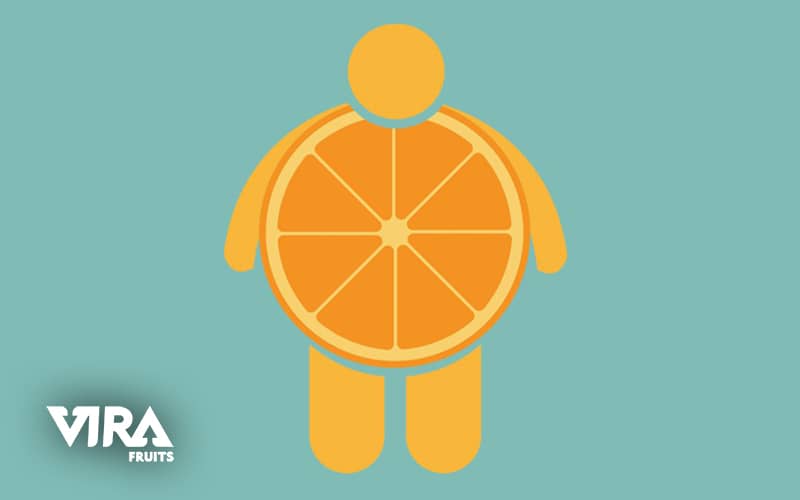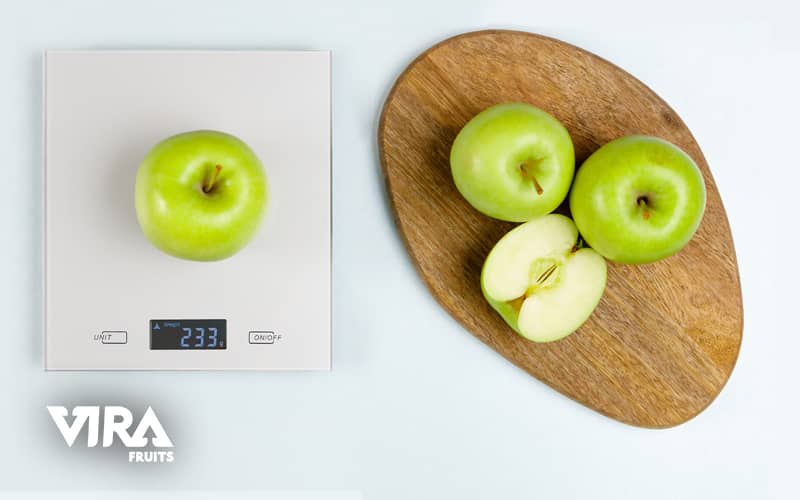Many people who want to lose weight increase fruits in their diet, but have you ever thought that can fruits make you fat? Therefore, in this post, we will discuss which fruit is good for weight loss and which Fruit makes you fat.

Does eating Fruit make you fat?
One of the most significant questions many people encounter on the road to fitness maybe this one.
A fruit diet can provide a variety of health and nutritional advantages. Dietary recommendations advise individuals to consume 1 to 2 fruits daily as a result. Fruit’s ability to aid in weight loss may be an added advantage for others. Although fruit includes natural sugars and carbohydrates, it can significantly affect your weight loss strategy. The secret is to eat it wisely.

Can fruit stop you from burning fat?
Let’s first define two key terms related to the weight loss process:
The phrase “fat-burning food” is a myth. There is no food that will lower your daily calorie consumption; all foods, including “negative calorie” ones like celery, have calories.
Now, fruit contains sugar, particularly a particular form of sugar known as fructose, which is why many individuals exclude it from their weight loss diet.
The fruit has other types of sugar besides fructose, though. Fruits naturally contain sucrose and glucose, which are both important sources of energy for our body’s cells sugar.
In comparison to glucose, fructose is processed differently by the body. Fructose specifically causes a halt in the liver rather than entering the bloodstream after entering the intestines. There is a widespread misconception that fructose is instantly converted to fat by the liver. However, do you think can fruits make you fat?
However, the liver will turn fructose into fat if you are sedentary and consume lots of calories during the day.
In comparison to other energy-dense foods, fructose does not appear to induce increased liver fat accumulation in humans, according to research.

What fruits are helpful for losing weight?
No one fruit stands out as the greatest option for managing weight. Eating all fruits in moderation can aid in weight loss.
Vitamins, minerals, antioxidants, fiber, and prebiotics are just a few of the natural compounds in fruits that are beneficial for weight management and chronic disease prevention. Even if you consume a lot of vegetables, avoiding fruit will prevent you from benefiting from its unique antioxidants.
Even though studies have linked fruit eating to weight loss. According to a previous study, persons who were overweight or obese lost more weight when they ate more fruit than when they did not. Fruit-eating was linked to weight loss during 24-year research that followed more than 130,000 participants. Just make an effort to use a variety of fruits to expose your body to a diversity of nutrients and antioxidants.

Is the amount of fruit consumption important for weight loss?
Fruit should only be used in moderation, even though it can aid in weight loss. Fruit provides carbs, which are used to power your cells’ metabolic processes. After a meal or as a snack, consuming more carbohydrates (including fruit) might feed already present fat or promote the growth of new fat cells.
Because of this, your total calorie intake, which should include fruit, should be in line with your energy requirements, which are based on your height, ideal weight, gender, age, and amount of physical activity.

Does eating your fruit at the right time affect your weight loss?
It’s also crucial to consume fruit because the carbohydrates in it support activity. It makes no sense to eat a large bowl of grapes late at night while watching TV or browsing social media (when your fuel demands are minimal). Instead, incorporate fruits into your meals and snacks before your day’s active hours. For instance, you could consume berries for breakfast before heading to work, a small banana 20 to 30 minutes before your workout, and an apple with peanut butter in the afternoon.
Introduction of fattening fruits:
Eating various fruits with varying properties is very important to maintain physical health, lengthen life, boost immunity, and fend off numerous ailments. To lose weight, obese persons should eat more juicy, fiber-rich fruits. But in order to put on weight, slim people should eat fatty fruits.
- Dates are a good source of protein, fat, carbs, fiber, potassium, manganese, iron, and vitamin B6. They also have a lot of calories. Eating this fruit hence contributes to weight growth and fatness in persons.
- Avocado is a food source rich in calories, carbohydrates, protein, healthy unsaturated fats, fiber, potassium and vitamins K, C, E, and B5, and other diverse and useful nutrients.
- Bananas are a good source of potassium, fiber, carbs, and calories. This fruit is one of the fattening fruits since it includes proline, fat, manganese, vitamin B6, and minerals. People gain weight when they eat bananas as a snack, in the form of smoothies, desserts, and concoctions, along with high-calorie meals like peanut butter and high-fat yogurt.
- Coconut is a rich source of fiber, manganese, selenium, phosphorus, and copper, as well as significant levels of calories and fat. As a result, eating coconut meat in various ways and in combination with main dishes such as salads, fried vegetables, soups, and smoothies causes weight gain and obesity.
- Tropical fruits like mango, pineapple, and papaya have a lot of natural sugar, giving the body a good foundation to absorb energy swiftly and speed up metabolism. As a result, one of these fruits’ key attributes is their ability to burn fat. Protein, fat, fiber, vitamins B, C, A, and E, copper, and more are all present in mangoes.

Some of the most important benefits of fruit consumption:
Fresh fruit is abundant in water and fiber and has outstanding nutrient content, so its natural sugar is less concentrated than other sweet foods. For instance, a strawberry naturally has around 7 grams of sugar, compared to roughly 13 grams in a tablespoon of syrup and 17 grams in a tablespoon of honey.
While vegetables and fruits share some of the same vitamins and minerals, fully taking out a fruit diet can lose various antioxidants specific to fruits. Fruits high in vitamins are helpful for both preventing and treating cancer, including breast and liver cancer. They can have hepatoprotective qualities that prevent cancer when frequently ingested.
In general, in this post, the question can fruit make you fat? It has been discussed, and we have stated the benefits of fruit consumption.

zoritoler imol
wonderful issues altogether, you simply received a brand new reader. What could you suggest about your post that you simply made some days ago? Any positive?
Matin Rostami
Thank you for your kind words! I’m glad to hear that you found my content interesting and that you’ve become a new reader. As for my previous post, I’m always striving to provide helpful and informative content to my audience. If you have any specific feedback or questions about a particular post, I would be happy to address them. Thanks again for your support!